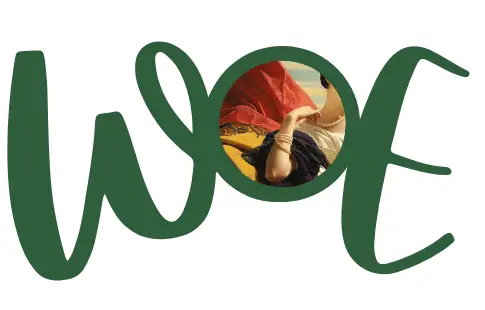January 14, 2024
Alexandra Kinias
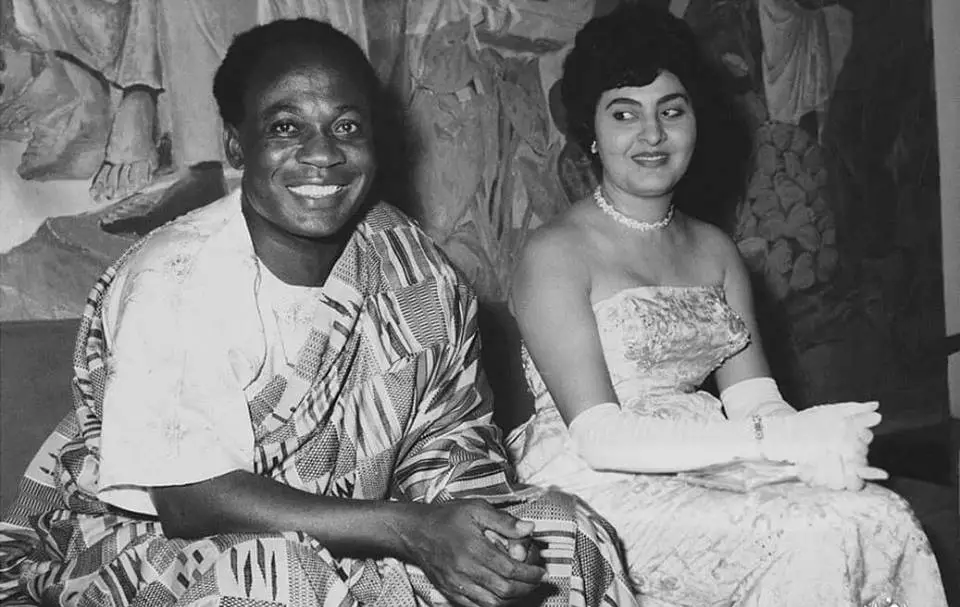
In today’s world, it’s uncommon for presidents and heads of state to marry while in office, let alone sending an envoy to another country in search of a life partner. However, this was the unique situation for Kwame Nkrumah, Ghana’s first president after its independence, and his Egyptian wife, Fathia Nkrumah (nee Fathia Rizk).
Their story is neither a Cinderella tale nor a match made in heaven. The couple didn’t meet until the day of their marriage, which took place on New Year’s Eve in December 1957-1958. Adding to the complexity, Fathia didn’t speak her groom’s language, English, and he didn’t speak Arabic.
With the blessing of President Nasser of Egypt, the marriage can be seen as a political union bridging the Mediterranean North Africa, with Nasser as the figurehead leader, and the rest of the continent. Ghana, as the first Sub-Saharan country to achieve independence, served as an inspiration and deliberate spearhead for the independence struggle across the rest of Africa.
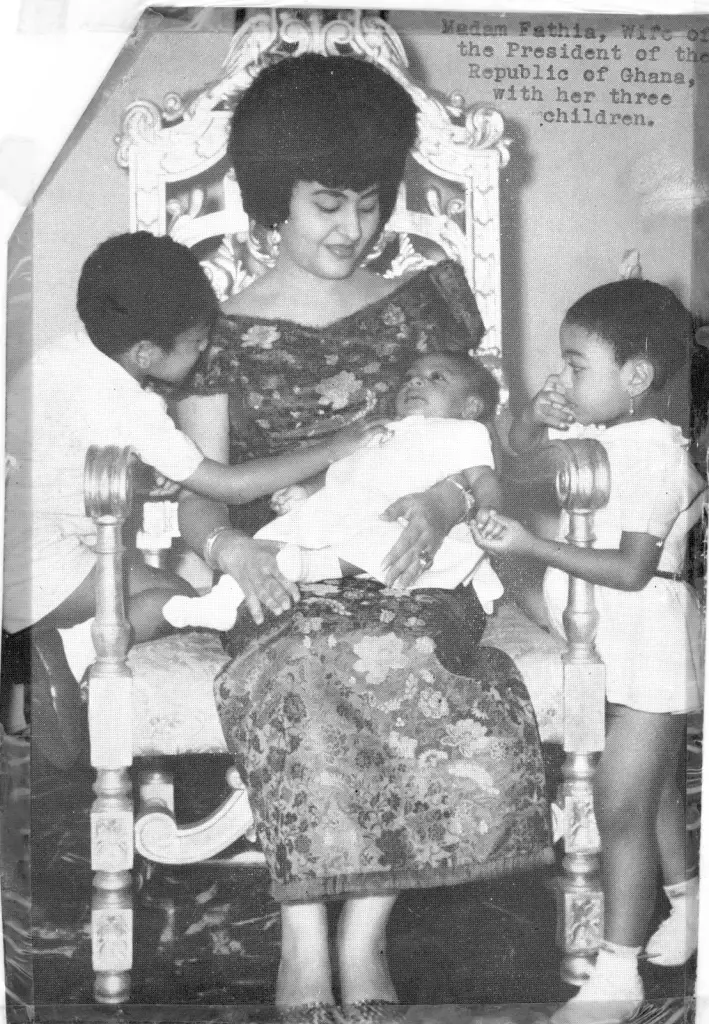
The marriage played a crucial role in cementing the relationship between Egypt and Ghana. President Nasser took on the role of mediator between the couple, successfully persuading Fatiha’s mother, who initially objected to her daughter settling away from her. President Nasser assured her that he would open an Egyptian embassy in Ghana and provide a direct flight between Egypt and Ghana, allowing her to visit her daughter at any time.
A month prior to their marriage, diplomatic relations were officially established between the two countries. By marrying Kwame Nkrumah, Fathia not only became the first First Lady of the Republic of Ghana but also the only first lady who was not born Ghanaian.
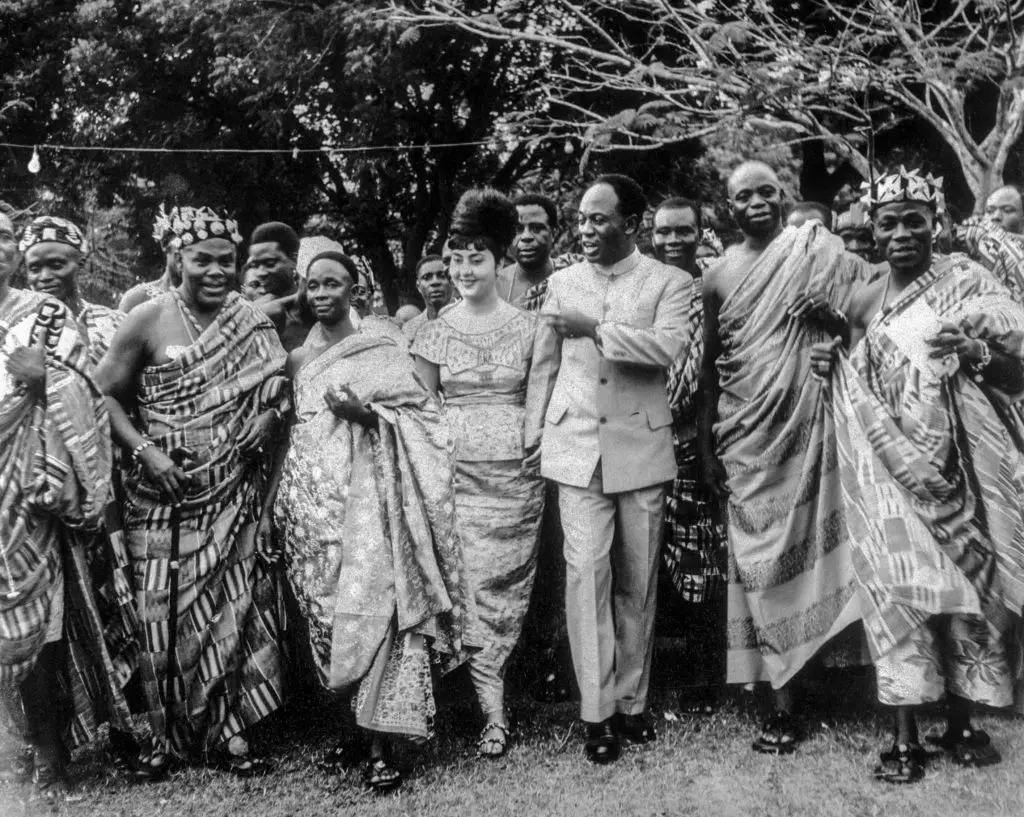
Born in 1932 in Cairo to a Coptic family, Fathia Nkrumah resided in a modest home in the Zeitun district. Her father, employed as a clerk in an Egyptian telephone company, passed away early, leaving her mother to navigate widowhood and raise Fathia and her siblings alone. As the eldest among five siblings, Fathia shouldered the responsibilities that came with her family’s circumstances.
Described by her son as “a very ordinary Egyptian girl” in many respects, Fathia pursued her education, focusing on French studies during her secondary schooling. Following her education, she initially worked as a teacher at Notre Dame des Apôtres school. However, finding teaching unfulfilling, she later transitioned to a job in a bank. It was during this time that, “luck knocked,” wrote her son Gamal in a tribute to his mother in September 2000 Al-Ahram, Egypt’s weekly paper.
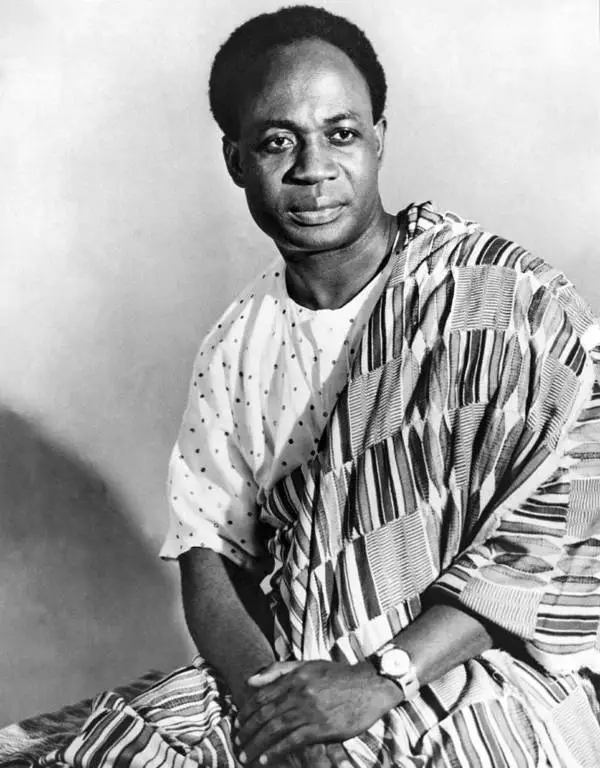
Nkrumah, motivated by a prophecy claiming that “Africa’s messiah will be the son of an African man and an Egyptian woman,” took steps to fulfill this vision. As a passionate Pan-Africanist aspiring for a unified Africa, and with the support of Egyptian president Gamal Abdel Nasser, Nkrumah took decisive steps to find an Egyptian wife. He dispatched a friend who was also married to an Egyptian, on a mission to find a match for him.
Presented with images of potential brides, Nkrumah was reportedly drawn to two young Muslim women but ultimately chose Fathia, possibly influenced by his Christian faith.
Considering that Fathia’s brother had previously left Egypt with his English wife, Fathia’s mother objected to the marriage. She was hesitant to see another one of her children marrying a foreigner and leaving the country. Fathia explained to her mother that Nkrumah was an anti-colonial hero, like Nasser, yet her mother refused to speak to her or bless the marriage.
Despite her mother’s objections, “the young Egyptian woman left her country to marry the most illustrious African anti-colonial leader of his time,” wrote Gamal.
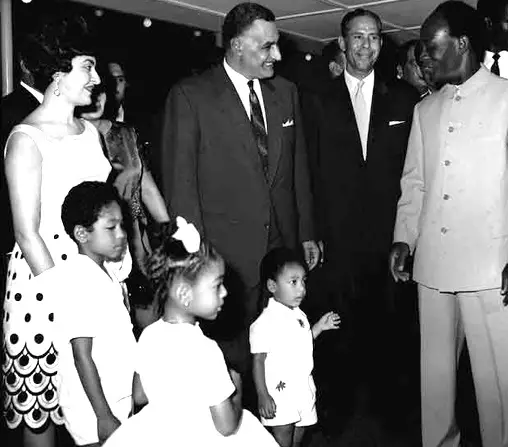
At the age of 26, on a chilly winter night, Fathia traveled to Ghana, accompanied by her uncle. The journey included stops in Khartoum, Kano, and Lagos before landing in Accra on New Year’s Eve, 1957.
The bride-to-be left with Egyptian president Gamal Abdel Nasser’s blessing and, according to Pauline Frederick, the author of Ten First Ladies of the World, Fathia wore royal jewels and the Grand Cordon of the Order of the Nile.
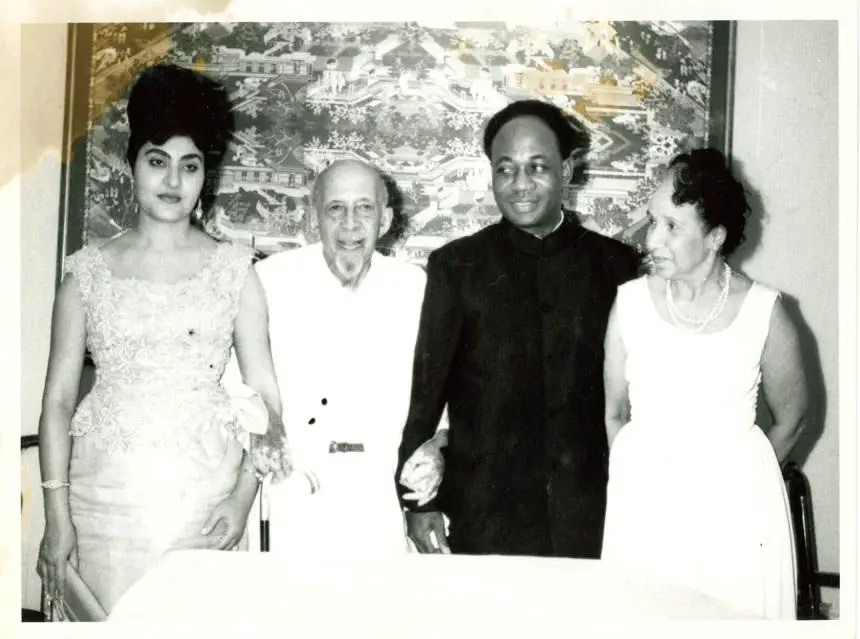
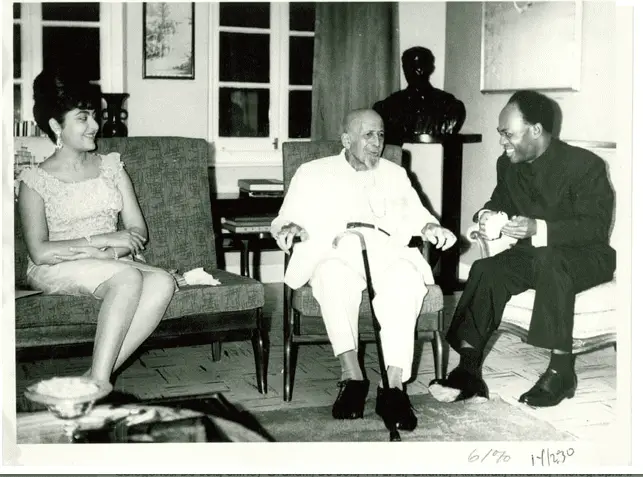
Nkrumah married Fathia the evening of her arrival in Ghana: New Year’s Eve, 1957–1958. They were married in a private civil ceremony at Christianborg Castle in Accra, the capital of Ghana. This wedding might have marked their first meeting. Unconventional by traditional standards, the wedding lacked a priest. Fathia neither wore a veil nor walked down the aisle with her groom. Even the customary Egyptian wedding practices of zaffa and zaghareet were also omitted. According to the article written by her son Gamal, during the ceremony, Nkrumah’s blind mother tugged at Fathia’s hair, expressing skepticism about her African heritage, despite assurances that her hair was jet black.
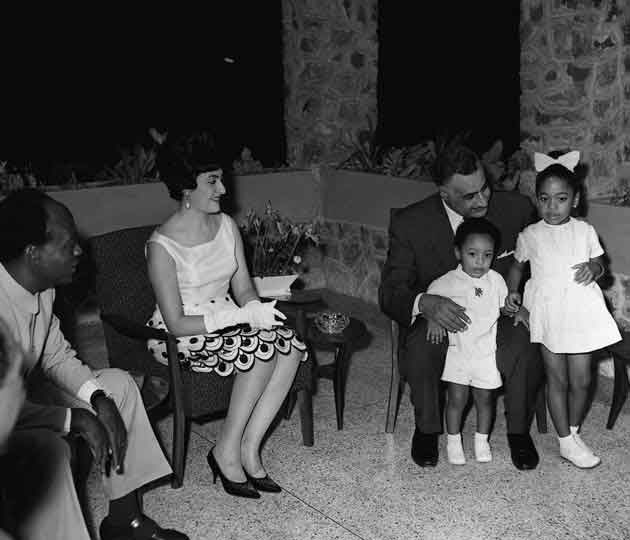
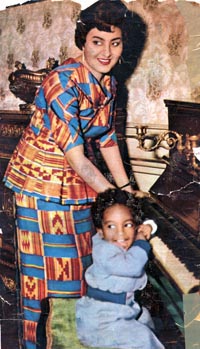
President Nasser who became like a father-in-law to Nkrumah knew of the date of the wedding ceremony, while Ghanaians of all levels did not know the date until several hours after the wedding. At first, many Ghanaian women expressed disapproval of Kwame Nkrumah marrying a foreigner. The militant women’s league of the ruling Convention People’s Party, in particular, felt aggrieved that the national hero had wedded a “white woman.” Nkrumah explained to them that his bride was African despite her fair skin, as noted by Gamal, yet the sentiment persisted.
Unprepared for her new role, the early days of marriage was challenging for Fathia, especially because of the language barrier, as neither spoke each other’s language. Not to mention that she was suddenly pushed into the spotlight, becoming a focus of attention and assuming the roles and responsibilities as the First Lady of the newly born independent country. “Within three months, however, her tenacity had served her well, and she was able to deliver speeches in English, Ghana’s official language,” wrote Gamal.
In his article, Gamal wrote that his mother was, “Genuinely fond of her new adopted home, she rarely yearned for Egypt. She was happy to escape the suffocatingly conservative culture she grew up in and happily embraced the rich vibrancy of Ghanaian culture. She was amazed at the fierce independence of Ghanaian women. They liked her in return.”
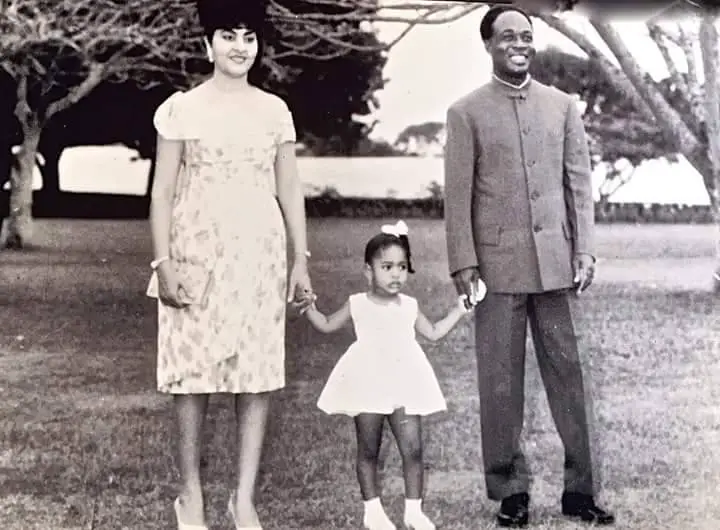
The couple had three children. The eldest son Gamal was named in honor of the Egyptian president. Their second son Sekou was named after Sékou Touré, the president of Guinea. Their youngest daughter was named Samia. In Ghana, Fathia first lived in Christianborg Castle, renamed Osu after independence. This castle, now a UNESCO World Heritage site, served as the seat of government and Nkrumah’s official residence at the time. Subsequently, she moved to the presidential palace known as Flagstaff House, where Fathia and her children made their home. Gamal noted that their daily routine was often interrupted by nerve-wracking assassination attempts.
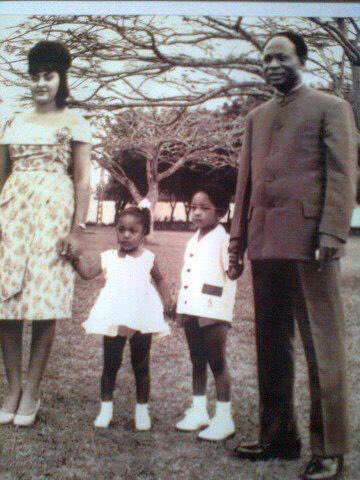
During her years as First Lady from 1958 to 1966, Fathia was an active first lady. She assumed the role of an informal representative of her country, interacting with African and global leaders. She played the role of hostess for figures like Charles de Gaulle, Haile Sellassie, Chou En-Lai, and Nikita Khruschev. In 1962, during an official visit to Ghana by Queen Elizabeth II and the Duke of Edinburgh, she had the unique honor of being the only Egyptian woman to dance with the Duke of Edinburgh.
She served as the chief patron of the National Council of Ghanaian Women and held the honorary position of chief in the Ghana Girl Guides. Additionally, she played a pivotal role as one of the founding mothers of the Pan African Women Organization (PAWO), established in 1962 in Dar-es-Salaam, Tanzania. PAWO emerged as a continental organization uniting African women who actively advocated for decolonization during that period and continued their efforts in the ongoing struggle for gender equality.
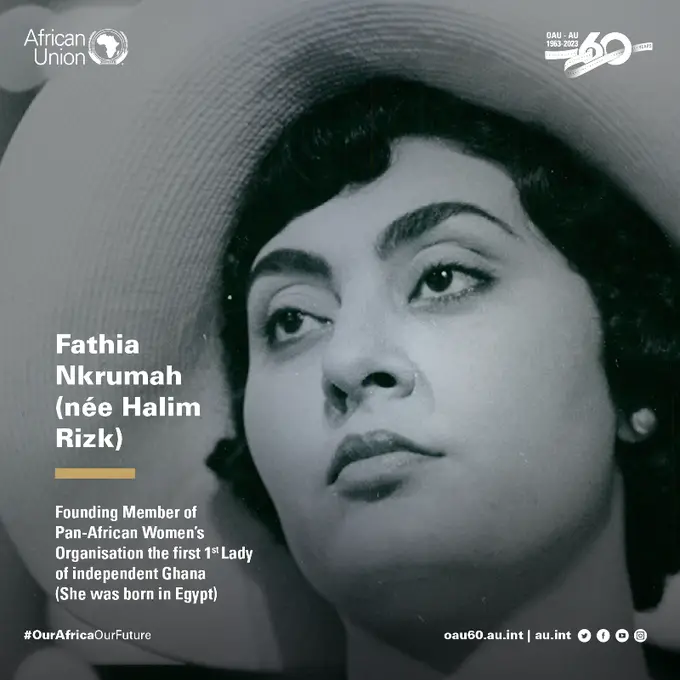
Fathia and her children lived in the presidential palace Flagstaff House until she was forced to leave after the military coup that ousted Kwame Nkrumah in 1966, when he was away on a trip to Vietnam and China. The military coup changed the course of lives of Nkurmo, Fathia and the children. Nasser dispatched a plane to bring Fathia and the children back to Egypt. After intense interrogations with the police, they were allowed to leave.
Kwame Nkrumah, viewed as the father of the independence movement, and after independence the father of modern Ghana, lived the rest of his life in Guinea, where he was named honorary co-president. His family was received at the Tahra Palace in Cairo for a period of three months, and then they settled in Maadi.
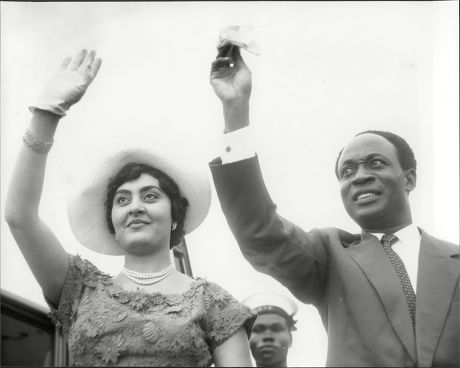
Dr Kwame Nkrumah Prime Minister Of Ghana And Wife Fathia Waving Farewell To Queen Elizabeth And Duke Of Edinburgh At Takoradi Dock.
After six years of single-handedly raising her three children, Fathia received the news of Nkrumah’s death on April 28, 1972. She attended his funeral in Guinea, and two months later, on July 7, 1972, she was on board the plane that transported his exhumed remains back to Ghana, where he was laid to rest.
The Nkrumahs returned from exile in 1975, responding to an invitation from Colonel Acheampong’s government, which welcomed the family back to settle in Ghana. Fathia and Kwame’s daughter, Samia, returned, where Samia attended school and later pursued university education. However, in the early ’80s, as political unrest escalated, the family found themselves forced to leave the country once more, driven out following the December 31, 1981 coup d’état. During this upheaval, the National Defense Council seized Fathia’s property.
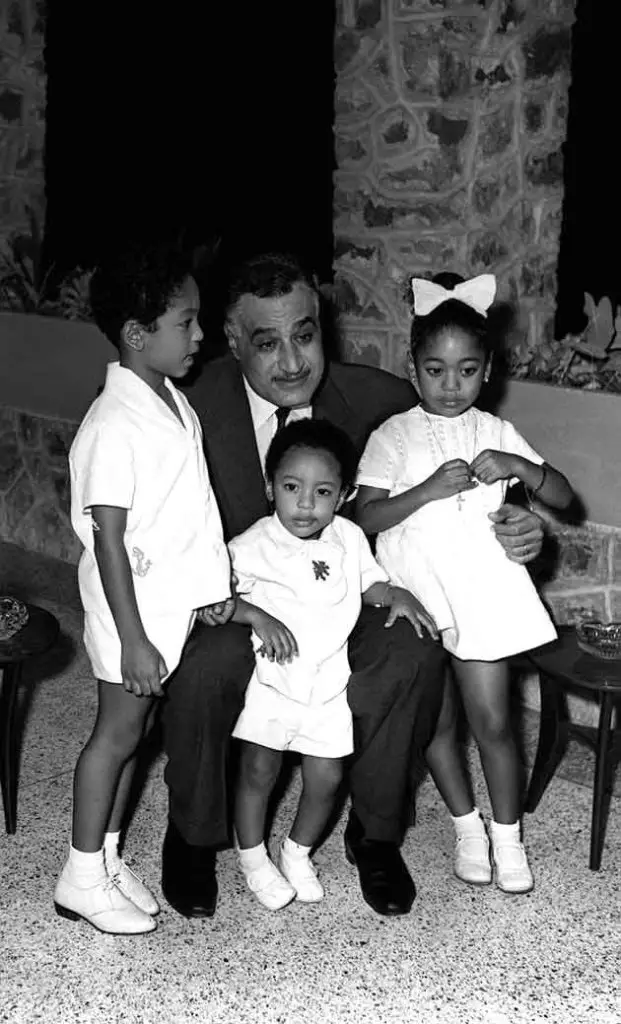
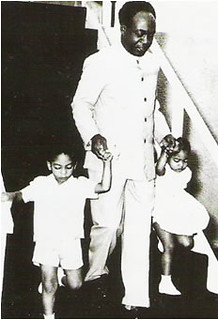
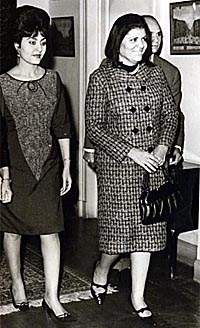
Following these event, she retreated from the public eye and lived a quiet, secluded life in Egypt, distancing herself from African politics, considering the trauma and turbulent life she had experienced. In 1997, Fathia reemerged into the spotlight during a visit to Ghana with her son Gamal to partake in the celebrations commemorating 40 years of independence. Gamal described the experience as deeply emotional, especially as they visited the marble mausoleum in Kwame Nkrumah Memorial Park, built in his honor by the Chinese, at the very site where he declared independence on March 6, 1957.
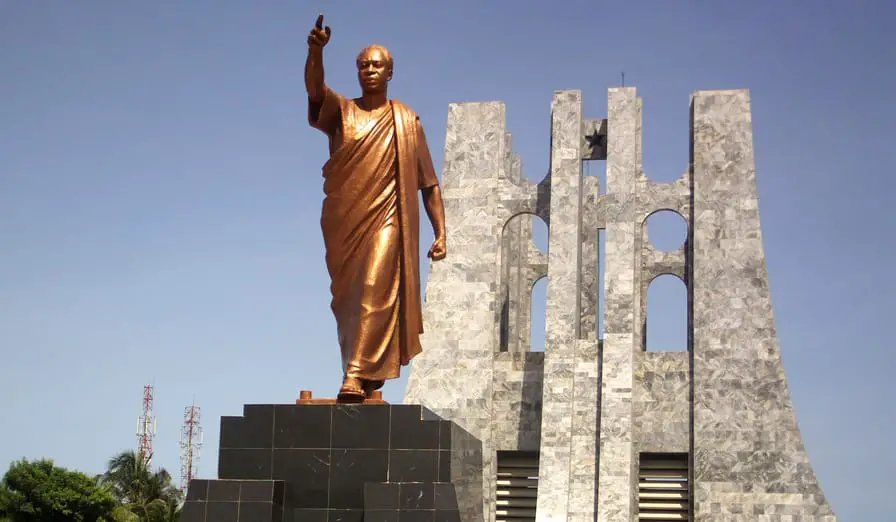
Fathia passed away on May 31, 2007, at Badrawy Hospital in Cairo due to health complications. A memorial mass was conducted at the Orthodox Cathedral Church in Cairo by Pope Shenouda III on June 1, 2007. She found her final resting place beside her husband at the Kwame Nkrumah Memorial Park in Ghana.
Except for the article written by their son, Gamal, very little is known about her tenure as the first lady of Ghana. Today, documentation about the life of Ghana’s inaugural first lady is scarce; in fact, it is nearly absent from historical records. It is rumored that the military junta that took control after Nkrumah’s ousting deliberately destroyed all the books and records from his administration.
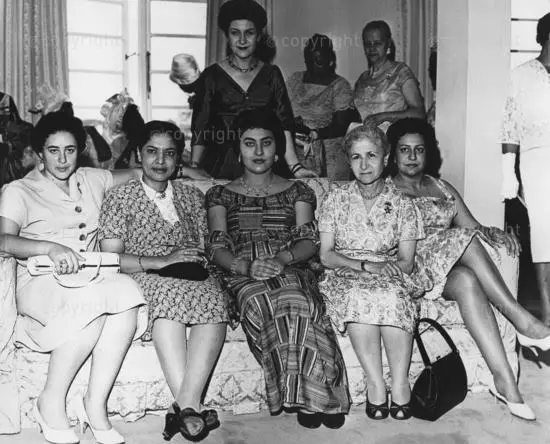
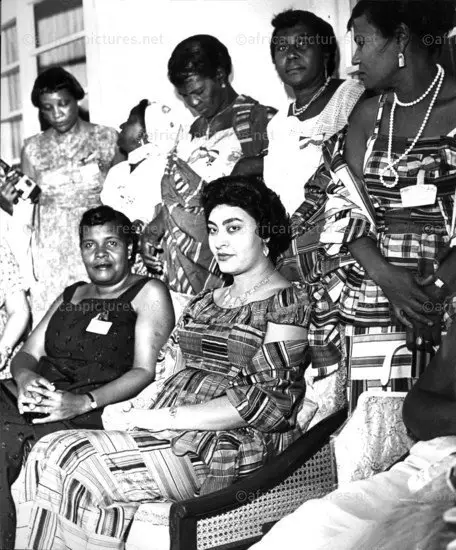
Kwame Nkrumah is still remembered for his unrepentant anti-colonial stance and strident Pan-Africanism. Above all, he is regarded as one of Africa’s ablest statesmen of the 20th century.
Kwame Nkrumah is still remembered for his unwavering anti-colonial stance and strong commitment to Pan-Africanism. Most notably, he is regarded as one of the most accomplished statesmen in Africa during the 20th century.
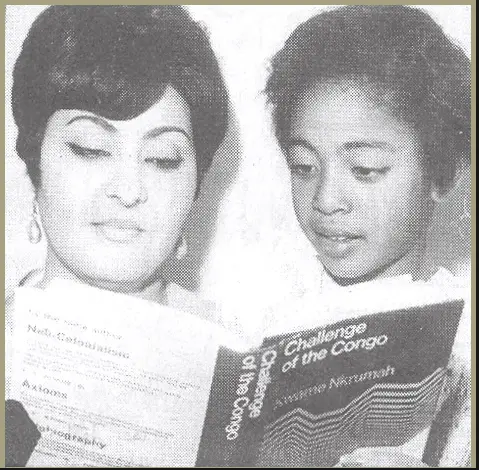
As his wife, amidst the upheavals of turbulent times in Africa, Fathia also emerged as a symbol of strength in the continent’s pursuit of freedom. Despite the scarcity of historical records, her unconventional marriage and influential role as Ghana’s first First Lady underscored her vital significance in the early history of the nation.
***If you liked this article, subscribe to the magazine and receive our articles in your email.
